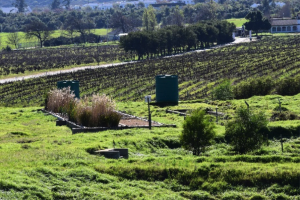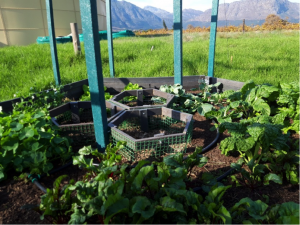By Dr. Kevin Winter, Environmental & Geographical Science Department, Lead Researcher: Future Water Institute, University of Cape Town
Contaminated runoff from informal settlements in South Africa poses an immediate public health risk to residents living in compact urban spaces, but the impact is evident in the receiving waters further downstream. Surface water runoff from informal settlements is a mix of grey- and blackwater and is often accompanied by solid waste. In a post-Apartheid South Africa, the legacies that have resulted in growth of informal settlements are difficult to overcome as a result of multiple factors including rapid urbanisation, an ailing economy, slow reforms in land restitution and a reliance on conventional urban plans and policies. Meanwhile, informal settlements remain as woefully under-serviced residential environments with poorly maintained water and sanitation services, and the absence of any formal stormwater drainage channels for disposing unwanted water.
The Water Hub: treating surface water runoff
In 2017 the Western Cape government established the Water Hub as a research and innovation site for the purpose of demonstrating new technologies and techniques in water treatment. The decision to establish this test bed site was prompted by a regional drought, the worst on record that resulted in Cape Town’s ‘Day Zero’. The site is situated in the beautiful Franschhoek valley, north east of Cape Town, surrounded by majestic mountains and vineyards. The closest urban area is less than a kilometre from the site where unemployment and urban poverty remain as legacies of the Apartheid Group Areas Act. In contrast, the formal historical town of Franschhoek is a mere 2.5km away and is well-known as a tourist attraction, hospitality services and award-winning culinary restaurants.
The context is important because it defines the role the Water Hub in research and development opportunities that directly engages in key the socio-economic issues and transforming conventional systems. It is situated on an old abandoned wastewater treatment plant. Existing infrastructure on the site is being repurposed into a nature-based treatment and resource recovery centre. The first project began by changing the old drying beds into large biofiltration cells that were designed to polish and clean 100 000 litres of water each week to irrigation water quality standards. Each cell is filled with different media such as stone aggregates and carbon sources. Water quality and flow are measured by using real-time sensors and loggers and transmitted via the internet to a database. After two years of data collection the results have led the researchers to tentatively conclude that nature-based solutions are capable of cleaning contaminated runoff from informal settlements without the addition of chemicals. Nitrogen and phosphorous concentrations are reduced by up to 90%, and almost all Escherichia coli bacteria is removed. Treated water is used for irrigating vegetables and the crop is regularly tested to comply with health and safety standards.

The circular economy
The project aims to incorporate a Circular Economy approach that will help to close the loop on a small portion of the material and energy flows that from the formal town of Franschhoek, for example, organic waste that is destined for landfill. The challenge will be addressed by integrating the Food-Energy-Water-Waste nexus that will focus attention on resource recovery, reuse and production of market goods that will unlock opportunities for the urban poor in cooperative business enterprises in food and energy production, technologies and the treatment and reuse of waste materials.

Partnerships
The Water Hub is a partner in the European Belmont SUGI WASTEFEW project and is one of four international “Urban Living Labs” (ULLs) with a common aim of reducing and understanding the waste economy in unique urban environments in the United Kingdom, the Netherlands, South Africa and Brazil. The South African ULL is sponsored by START International. The project explores how people create new interactive networks with the intention of reducing and reusing waste in a Circular Economy approach.


